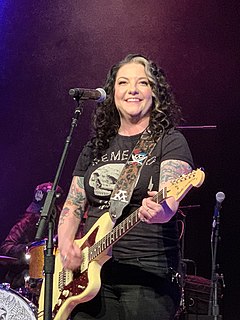A Quote by Laura Schlessinger
A lot of what children's hurt feelings are about is how the parents react.
Related Quotes
Love songs are all about how I'll move a mountain for you and I'll never hurt your feelings. I've never been given a mountain, and if you love me, you should hurt my feelings sometimes. If I walk outside looking ugly in that shirt, you don't love me if you don't hurt my feelings a little bit and tell me.
Love involves more than just feelings. It is also a way of behaving. When Sandy said, "My parents don't know how to love me," she was saying that they don't know how to behave in loving ways. If you were to ask Sandy's parents, or almost any other toxic parents, if they love their children, most of them would answer emphatically that they do. Yet, sadly, most of their children have always felt unloved. What toxic parents call "love" rarely translates into nourishing, comforting behavior.
We hurt each other, is the point. Hurt, annoy, embarrass, but move on. People, it just doesn't work that way. Your own feelings get so complicated that you forget the ways another human being can be vulnerable. You spend a lot of energy protecting yourself. All those layers and motivations and feelings. You get hurt, you stay hurt sometimes. The hurt affects your ability to go forward. And words. All the words between us. Words can be permanent. Certain ones are impossible to forgive.
I learned from my parents to do my best to not react to negative emotions. I try to think about what has happened and find the lessons that can be learned from these difficult experiences. I try to deal with these negative emotions right away because, if they stay inside, they can hurt and do a lot of damage. I release them as soon as possible so I can be free.
A lot of times, when parents overdiscipline their children, especially when they're queer, their intention isn't to hurt them. They think they're saving their children from harm. But they don't realize that they're causing harm, that they're doing to their kids exactly what they're afraid of the world doing to them.
Are we not witnessing a situation where children are conciously rejecting their parents' value despite love and devotion given to them? The present situation has arisen because parents have failed to transmit a sustaining faith to their children. The basic reason for this failure is that the parents themselves lacked faith. Without faith, their love was an image not a reality, a statement of words not an expression of feelings
To raise children you must have love and a wholesome understanding, and that is why a parent should pray fervently for their own salvation, so that their own sin does not get in the way. We can be saved from irritation and anger! Children can quickly sense if their parents are irritated, and then the children can be easily provoked and react stubbornly.
What I have learned from the teachers with whom I have worked is that, just as there is no simple solution to the arms race, there is no simple answer to how to work with children in the classroom. It is a matter of being present as a whole person, with your own thoughts and feelings, and of accepting children as whole people, with their own thoughts and feelings. It's a matter of working very hard to find out what those thoughts and feelings are, as a starting point for developing a view of a world in which people are as much concerned about other people security as they are about their own






































